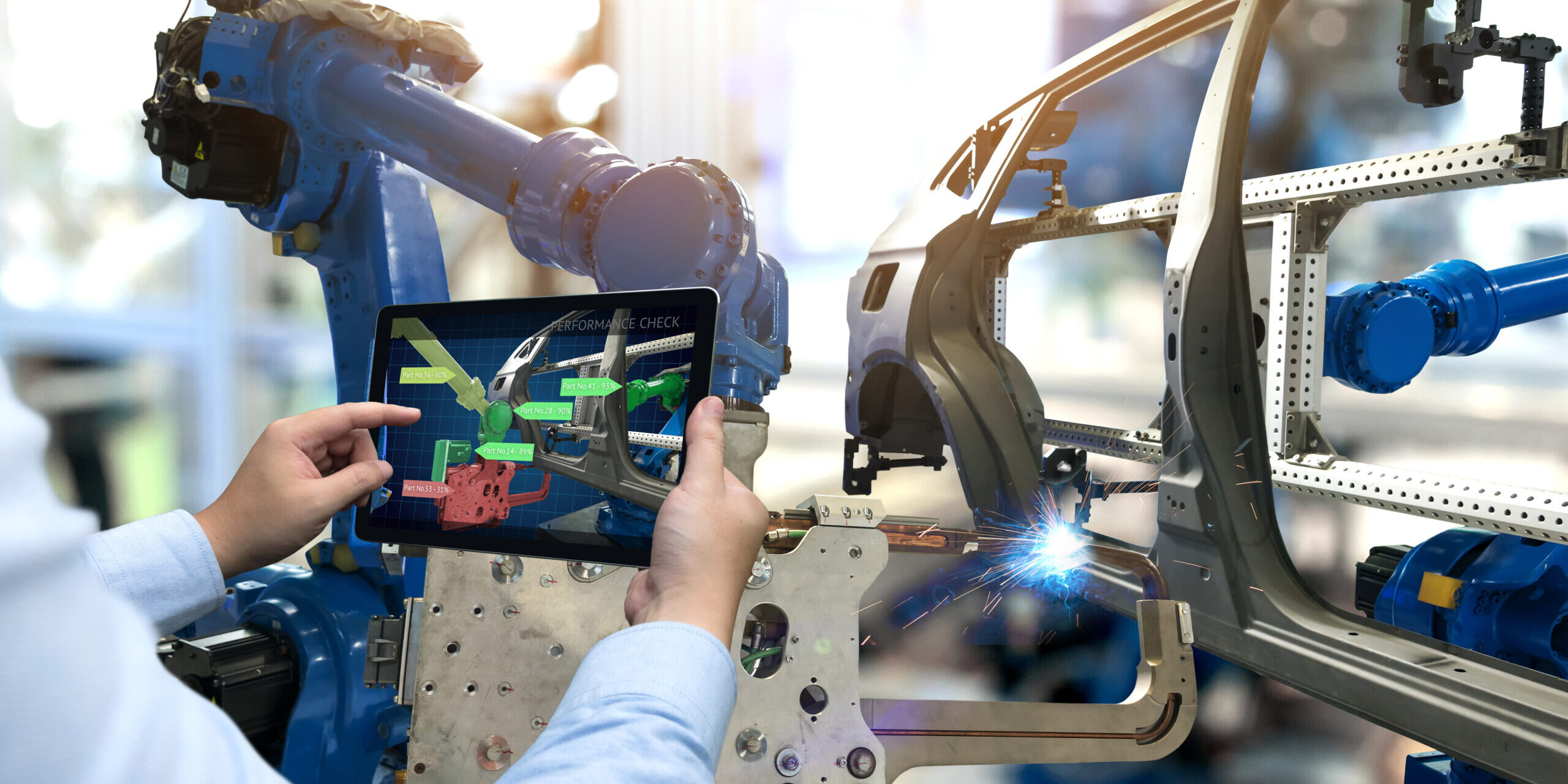Industry 4.0: With AI through the 4th industrial revolution
What is Industry 4.0?
After the first industrial revolution, which discovered the use of steam power for machines, through the application of electricity in mass production in the second industrial revolution, the fourth industrial revolution continued what the third revolution began with computers, IT and automation: Industry 4.0 now supplements computer systems with artificial intelligence and refers to the intelligent networking of machines and processes in industry with the help of information and communication technology. The essential economic leverage of Industry 4.0 lies in the necessary acceleration of entrepreneurial decision-making and adaptation processes. This applies to efficiency improvement processes in development, production, service, marketing and sales as well as to the alignment of entire divisions or adjustments to the business model.
Benefits and requirements for SMEs:
This development is being driven by constantly increasing customer requirements, particularly with regard to individualization, service quality and speed of response. In production, for example, Industry 4.0 not only enables the decentralized production control of individual parts and small batches („batch size 1“), but also the documentation and control of resource consumption, i.e. the materials and energy used for each workpiece.
Industry 4.0 is therefore based on the following basic principles:
- Interoperability: Machines, devices and sensors can interact with each other and also communicate with people.
- Transparency: Sensors are used to create digital copies of real objects which, with the help of corresponding digital models, make it possible to investigate what is happening on the physical object. This means that all information about all processes is also available in digital form.
- Decision support: Based on the collected and processed data, systems can support people in making decisions. Automation is designed to be as complete as possible and sensible.
A corresponding study on shaping digital transformation in companies, to which Professor Antonio Krüger, CEO and Scientific Director of the German Research Center for Artificial Intelligence (DFKI) GmbH, among others, made a significant contribution, presents what is known as the „digital transformation“.
Industry 4.0
Maturity Index
provides a good guideline for initiating and implementing the necessary digital transformation process.
Digitalization and the implementation of Industry 4.0 is also financially feasible for SMEs, as Professor Antonio Krüger, CEO and Scientific Director of the German Research Center for Artificial Intelligence (DFKI) GmbH, explains in an interview explains: „The good news for every SME that discovers its own digitalization gaps is that the costs for retrofitting, i.e. the digital upgrading of existing systems, have fallen sharply, meaning that pent-up demand has become affordable. Even more important, however, is the news that no new greenfield construction is required to participate in „Industry 4.0″.“
Possible areas of application for SMEs:
There are tailor-made options for companies to implement and use Industry 4.0. For example, by digitally networking the various suppliers along the entire supply chain, the individual production steps can be better coordinated, machine capacity utilization can be planned more precisely and production as a whole can be made more flexible and demand-driven. Algorithms calculate ideal delivery routes, machines report independently when they need new material – smart networking enables a sustainable flow of goods. Consumers and producers are also moving closer together to create customer-centric solutions and products: Customers can help design products themselves according to their wishes, e.g. they can design elements on sneakers themselves or the shoes can be adapted to the individual foot shape. As part of Industry 4.0, production lines have a modular structure so that they can be quickly adapted for different tasks. Productivity and efficiency are improved, individualized products can also be manufactured in small quantities at affordable prices.
Industry 4.0 is by no means only applicable to production. There are also corresponding success stories from the fields of logistics, consulting, skilled trades, training and further education and many more.
We are here for you!
If you are also interested in the digital transformation of your company and are interested in getting started with Industry 4.0 for your company, we at EDIH Saarland will be happy to help you at any time. We offer you comprehensive services (such as individual feasibility studies, business process evaluations, but also the development of prototypes) via our portal. Feel free to contact us at info@edih-saarland.de, on +49 (0) 681 85787 – 300 or via the button below and arrange a free consultation today to get answers to your questions about digitalization and Industry 4.0.

